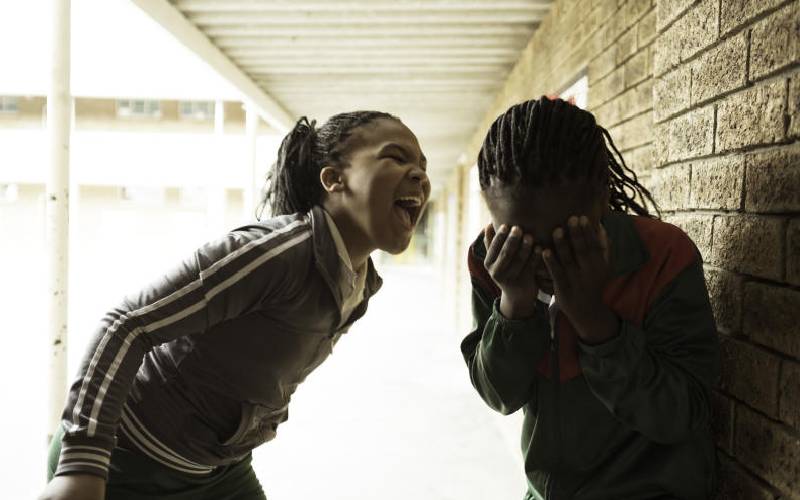
A school girl bullies another girl in a secluded passageway outside a school building.[Getty Images]
Problems experienced in childhood or adolescence can have life?long implications. When younger children encounter the justice system, the more likely they are to have sustained contact. An overwhelming majority of children who have come into conflict with the law are victims of neglect, exploitation, and social, psychological and economic hardships. These children need and have a right to proper care, guidance, protection and opportunity for social reintegration; all of which need to comprise the rehabilitative role of the juvenile justice system.